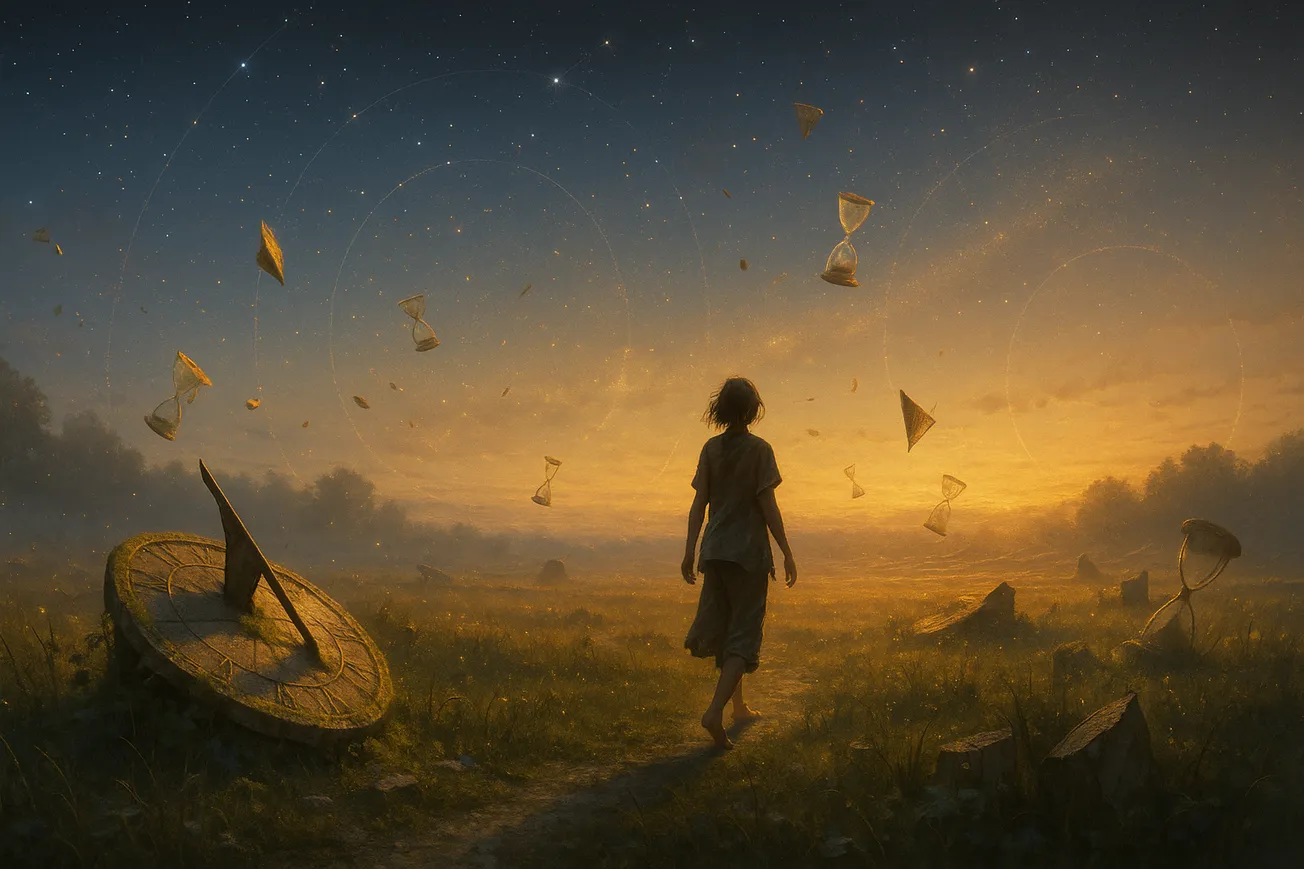🌈 The Fractal Story Engine | Time & Reality | (14) TR-003-R
There is a clock in the human soul, but it does not keep time. It keeps pressure. It keeps urgency. It ticks not toward an event, but away from worth.
We grow up learning to measure ourselves by it: the age we should achieve, the deadlines we must honor, the hours we’re allowed to rest. We internalize the second-hand’s rhythm like a metronome of value. Faster is better. Sooner is safer. Late is failure.
But what happens when that structure, so familiar it feels like gravity, suddenly lifts?
Time is a strange master. Not because it marches forward, but because we believe we must race alongside it. In a world obsessed with productivity, to stand still is heresy. But stillness isn’t stagnation. It is presence. The kind of attention that burns through the illusion that “next” is more important than “now.”
When the clocks break, a deeper timing emerges. Not the rhythm of commerce or calendar, but the strange, slow pulse of wonder. The kind of time you feel in the desert. Or in grief. Or at the birth of a child.
Without clocks, we do not lose time. We lose the story that time is a cage.
What if time is not a line, but a pool? What if it gathers and bends, invites us to step outside chronology and into encounter?
In ancient myth, there were gods who kept time, but they did not own it. They guarded it. Honored it. Treated it like fire: sacred, dangerous, and illuminating. In contrast, modern culture tends to treat time like a commodity, something to be spent, saved, killed, or optimized. But that vocabulary distorts something elemental. You do not spend the moonrise. You do not save a thunderstorm. You meet it, or you miss it.
Perhaps the real question is not “What time is it?” but “What kind of time is this?”
There are times that demand action. Times that invite stillness. Times that break you open and offer no explanation. And there are rare times that step outside all others, a holy interval where the story of measurement is suspended and something unnamed is allowed to arrive.
We call these moments ineffable, but perhaps they are not beyond words. Perhaps they are older than words. Perhaps they ask not for language, but for attention.
To live without clocks, even briefly, is to be reintroduced to your own life. To see what you were too busy to see. To feel what you were too scheduled to feel. To listen for what pulses beneath the ticking: not a deadline, but a door.
And that door does not open with urgency.
It opens with willingness.
What can the reader learn from this story?
Sometimes the world must stop to show us what we’ve forgotten how to feel. When we abandon the illusion of constant forward motion, we rediscover the presence that time cannot measure. The most important hours do not arrive on schedule. They wait for us to notice them.

